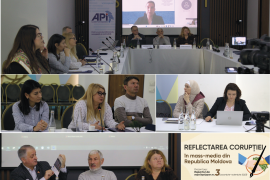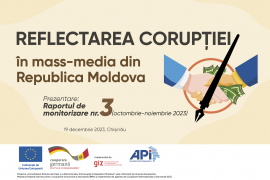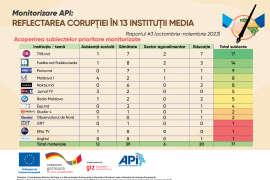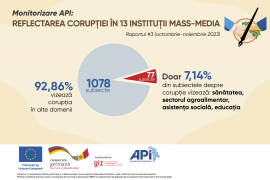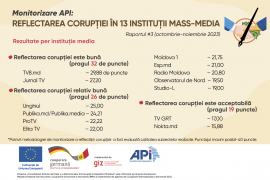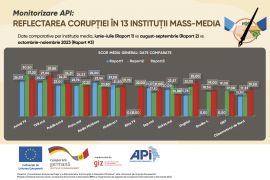back
Six Months of Monitoring of Media Coverage of Corruption: Modest Developments and Continuing Editorial Shortcomings
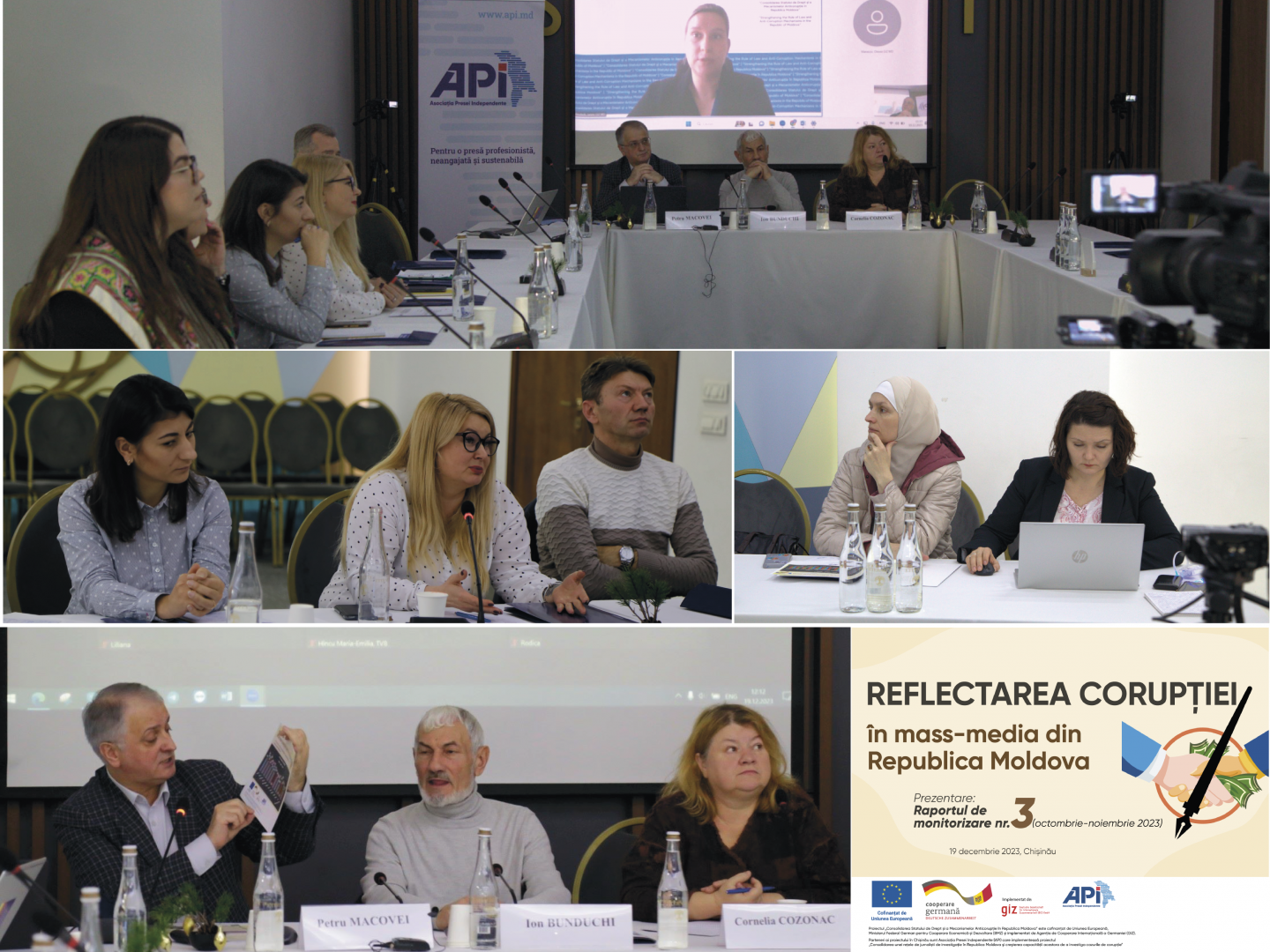
Colaj API
Media outlets have shortcomings in planning and producing media stories about corruption in some areas of public interest. The number of thematic materials is relatively small, short news stories are predominantly published to the detriment of stories with elements of analysis of the corruption phenomenon, and some media outlets choose to take over articles of questionable quality from other sources. These and other findings are contained in the third report on monitoring media coverage of corruption in some areas of public interest, presented by API at a press club. The event took place on 19 December 2023 and was organized in partnership with the Centre for Investigative Journalism (CIJM).
In October–November 2023, API produced its third and final report on monitoring media coverage of corruption in four priority areas: education, healthcare, social welfare, and agri-food. Based on a complex methodology, focusing on quantitative and qualitative criteria and indicators, the same 13 media outlets were evaluated as in the previous period: five TV stations (Moldova 1, Jurnal TV, GRT TV/Comrat, Elita TV/Rezina și Studio-L/ Căușeni), five news portals (Protv.md, Publika.md/Publika.media, TV8.md, Nokta.md/Comrat, Esp.md/Bălți), one radio station (Radio Moldova) and two regional newspapers (Unghiul/Ungheni and Observatorul de Nord/Soroca).
Data from Report #3 (October - November 2023) shows that while the number of stories on corruption in general increased by about 31% compared to the previous period monitored (1078 vs. 824 stories), the number of stories covering corruption in education, healthcare, social welfare, and agri-food decreased by 12.5% (from 87 to 77). "This can be explained by the fact that most media outlets focused mainly on covering political corruption in the local election campaign, overlooking other topics in the priority areas for the people," said Ion Bunduchi, author of the report. The report shows that the best results for corruption coverage on the four indicators included in the methodology (journalistic genre, authorship, audience and quality) were recorded by the portal TV8.md (29.88 points out of 40 possible points, according to the methodology), Jurnal TV (27.20) and the newspaper Unghiul (25.00). Comparing data from the previous six months of monitoring (from June to November inclusive), the expert found that some newsrooms had improved in terms of quantitative and qualitative indicators, while others had stagnated or regressed. The monitoring report includes general recommendations but also suggestions for each newsroom.
At the opening of the Press Club, Janine Baudach, Project Director at the German Agency for International Cooperation (GIZ), among other things, said that corruption was a significant challenge for society, affecting various sectors and undermining citizens' trust in public institutions. Therefore, the media had a central role to play in exposing corruption, ensuring transparency in the act of government, so that those involved in corruption were subsequently held accountable. Petru Macovei, Executive Director of API, stressed that the three monitoring reports could be of great use to the newsrooms monitored, as they provided an unbiased external analysis of their editorial policies, and were a snapshot of how issues of public interest were reported. He noted that monitoring of corruption coverage was over for the time being, but corruption still existed and the media should be constantly on the lookout for it to fulfil its social mission. For her part, Cornelia Cozonac, president of the Centre for Investigative Journalism, stressed the importance of training and capacity building for investigative journalists. She noted that the CIJM was currently working to strengthen the network of investigative journalists, providing legal and financial support for authors of investigations into corruption in areas of public interest.
The second part of the press club included discussions with the participants present in the room, but also with those who connected online. "We are glad that we are among the media outlets that have evolved in terms of corruption coverage, but we have to admit that material taken from other sources prevails, so we have something to learn and where to grow," said Adrian Turețchi, director of the newspaper Unghiul. "We are also seeing some improvement in corruption coverage. We still have a lot of work to do, because we are not managing with our small team to plan and produce more thematic material, even if we want to. In the last period monitored we focused our effort and time on covering the campaign for the general local elections, but we will try to follow the report recommendations in the future," added Victor Cobăsneanu, editor-in-chief of the newspaper Observatorul de Nord.
For details contact us by e-mail at ion.mazur@api.md or by telephone at 022/222036 (contact – Ion Mazur).
Partners of the project in Chișinău are the Association of Independent Press (API) and the Center for Investigative Journalism (CIJM) which implements the project "Strengthening Network of Investigative Journalists in Republic of Moldova and Increasing Their Capacity to Investigate Corruption Cases."
